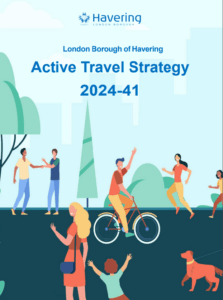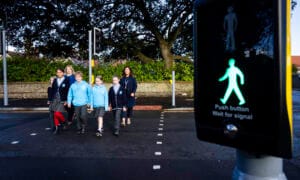Funding has been awarded to 12 organisations across England with the aim of understanding how transport can play a role in helping people who are feeling lonely.
Pilot projects receiving a share of the £5 million funding include support for older people using public transport after the pandemic, autism awareness training for staff across the transport network and a group electric cycling scheme.
Millions of people across the nation are struggling with feelings of loneliness, which were exacerbated by the pandemic. The government is committed to tackling loneliness, including through building the evidence base for what can alleviate this problem. Findings from the pilots will be used to inform how future transport schemes can contribute to reducing loneliness in communities.
Minister Baroness Vere said: “Loneliness affects millions of people across the UK. Transport can help us solve this problem by connecting us to people, places and experiences.
“Congratulations to the organisations that secured funding for their proposals. This is a great opportunity to improve future transport schemes and shape the national conversation on loneliness. We will continue to work closely with transport providers and community groups to build an inclusive and accessible transport network.”
Age UK’s Travelling Companions scheme will involve volunteers across England encouraging and supporting older people to reconnect with their communities, including using public transport again after the prolonged period of enforced isolation caused by the pandemic.
Hannorah Lee, Director of Partnerships at Age UK, said: “Age UK is delighted to have been awarded funding from the Tackling Loneliness With Transport Fund. Around 1.2 million older people in the UK often feel lonely, which can have a devastating impact on their mental and physical health, and the pandemic made the situation worse.
“Age UK’s Travelling Companions scheme will help significant numbers of older people to get back on public transport and go out and about once more. Best of all, it will have lasting benefits for them, improving their quality of life and supporting them to feel part of their communities again.”
National Autistic Society’s Driving Change for Autistic People project will offer training to transport providers across England, ensuring that their staff have an increased understanding of autism – removing barriers for autistic people who wish to use public transport to reduce their loneliness.
Christine Flintoft-Smith, Head of Autism Accreditation at the National Autistic Society, said: “Autistic people represent a huge part of our society – around 1 in 100 people in the UK. And they need to travel to school, work and to the shops just like everyone else.
“But some autistic people can feel so anxious about travelling on public transport that they find it hard to leave the house at all. It’s not just worries about crowds or a sudden diversion that can trigger intense anxiety. It’s also concerns about whether other passengers will stare or tut if they do become overwhelmed.
“We hope our Driving Change for Autistic People project will remove barriers for autistic people who wish to use public transport and ultimately help reduce loneliness and social isolation. It’s so important that all staff understand autism and the often small adjustments that can make all the difference to autistic passengers.”

























